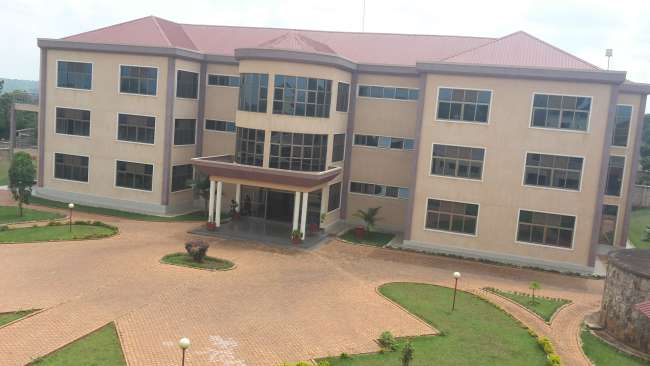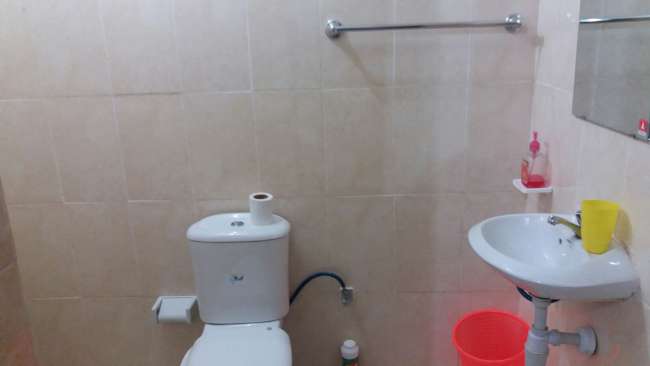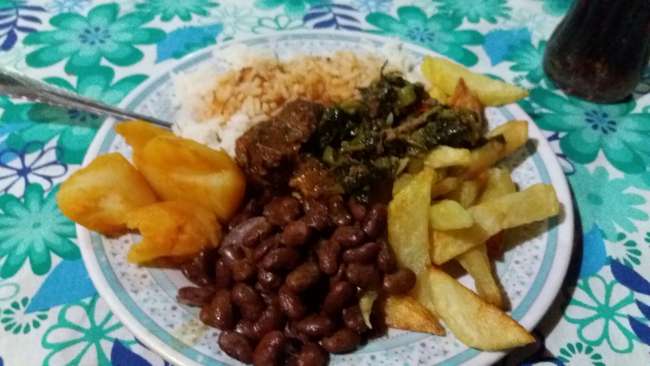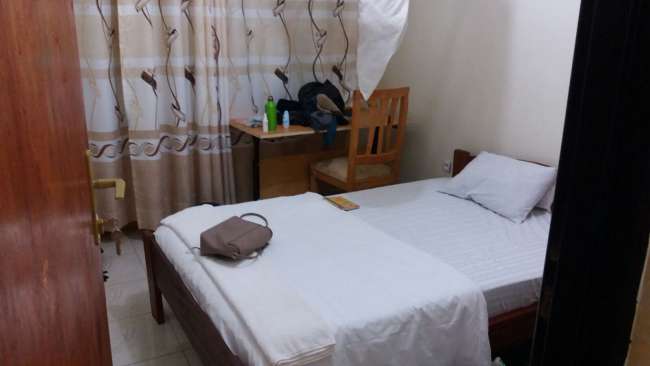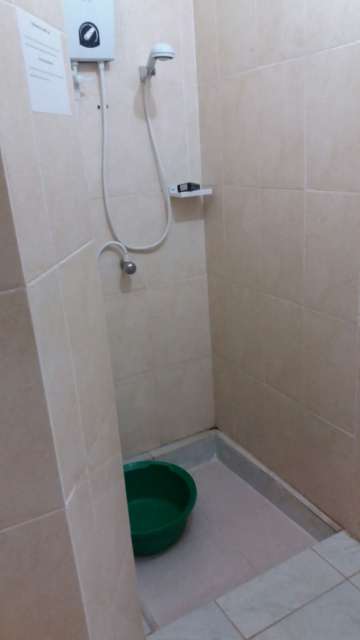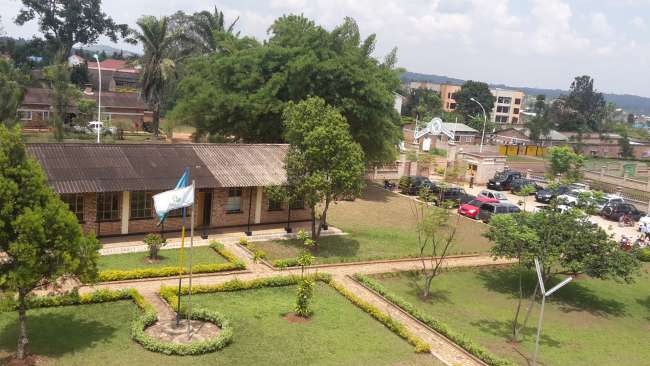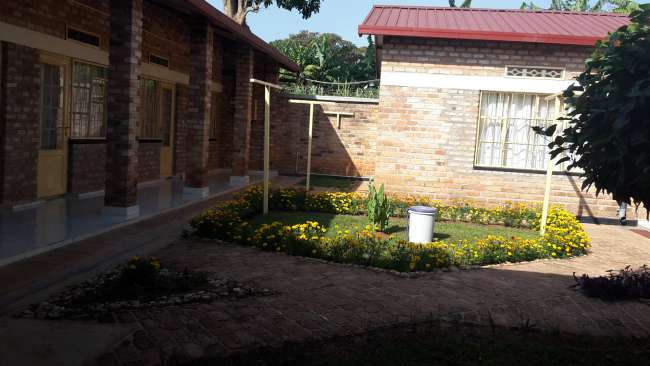First impressions in the new home
已发表: 13.01.2017
订阅时事通讯
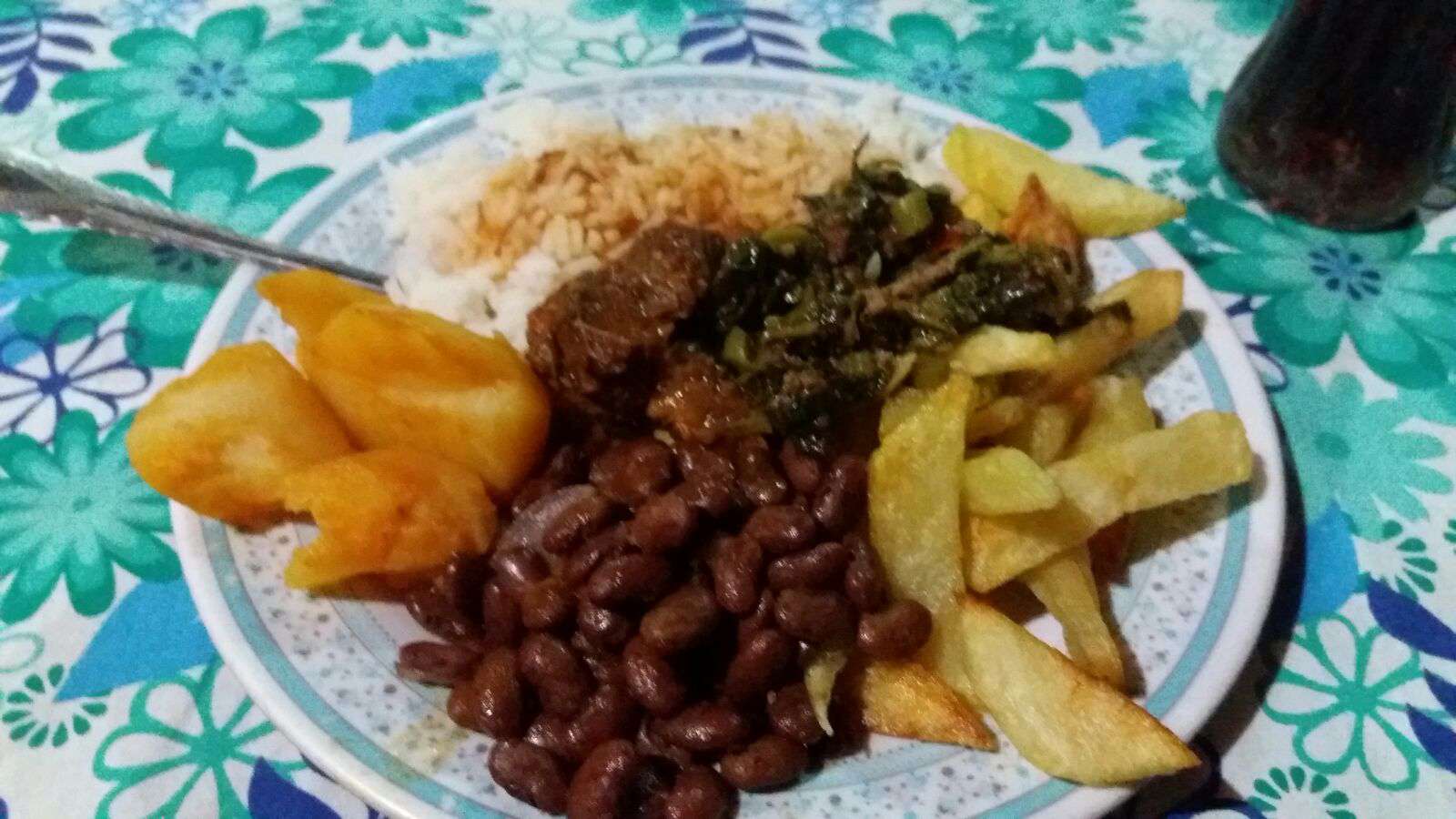
Viateur, the vice president of the university, officially received us in his office along with two other university employees. We immediately noticed how important the cooperation with DHBW is for PIASS University and how happy they are to have six German students studying at their university for three months. During this meeting, we were able to address initial questions such as visas or accommodation costs. We immediately felt very comfortable. Afterwards, we were guided through the university buildings by Damien, the main employee of the library, which extends over several buildings. Subjects that can be studied here include "Peace and Development" and "Theological Studies," as the name of the university, "Protestant Institute of Arts and Social Sciences," suggests. Together with Damien, we walked to the neighborhood of Huye for the first time. It takes about 25 minutes from here. There we had the opportunity to shop in a small supermarket, which would not even be considered a supermarket in our country. However, the most important things can be found there. We stocked up on drinking water, toilet paper, and some snacks. At 4 p.m., we had a small meeting with Kazu, the head of the Peace Department at the university. He introduced us to some of his students and thus established initial contacts. With these students, we will attend a course called "Reconciliation" for the next four weeks. The lectures take place in the evenings, usually from 6 to 9 p.m., and on Saturdays from 8 to 11 a.m. Fortunately, we Germans have Sundays off. The lecture primarily focuses on the genocide that took place here in 1994. The course includes students from Rwanda, Burundi, Congo, Japan, America, and us Germans. It is a diverse group. In the evening, we went out to eat. I don't even know how to describe this restaurant because it's not really a restaurant. There is a small kiosk in the front, and through a small door in the back, you enter a back room with a few tables and chairs. It would not be apparent to outsiders that there is a small restaurant in this kiosk. Since the owners spoke very little English, we simply asked them to bring us something to eat. After a while, a plate of rice, chips (similar to wedges), potatoes, red beans, meat skewers with goat meat (which I politely passed on to others), and some green vegetable (difficult to compare to anything) was brought to us. It looks similar to spinach, but it definitely didn't taste bad, just very plain. We Germans probably use too much salt. Coincidentally, three Japanese women also had dinner that evening. After a short time, they approached us and asked if we were the German students. They are also students at PIASS University. Without hesitation, they sat down with us at the table. In general, the people here are very open, at least the students. So the second evening ended much better than the first evening, thanks to the interesting and fun conversations with the Japanese women, whose names are Yui, Yuki, and Yuka - no joke! :D
The next morning, some students from the Peace Club, who are taking the course with us, gave us a tour of the city. It is fascinating to see how openly people interact with each other here. We were welcomed more warmly than we expected. Some students took the time to show us around the city for 5 hours. The tour was very interesting as we visited places that we might not have noticed on our own. The city of Huye became a bit more familiar to us. We were delighted to discover a swimming pool where you can swim all day for 1000 Rwanda Francs (approximately 1 Euro). We will definitely take advantage of it since it is usually around 30 degrees Celsius here. A little refreshment will be welcome. It was also interesting for me to see that there is a lot of construction happening in the city. When I asked about it, I was told that the government requires the renovation of old houses in the neighborhood. If someone cannot afford it, they are forced to sell their house to someone who has enough money to renovate it. If they are lucky, the original owners can afford to rent it. If not, they usually have to move to a village outside the city. In the evening, we had our first lecture together. Since we Germans do not have to take an exam at the end, we can sit in the course relaxingly, participate in discussions, and absorb the impressions. However, the time from 6 to 9 p.m. is unusual for me, as I am not used to being fully focused and receptive at that time. By local standards, we are very well accommodated here. Once the Wi-Fi allows it, I will attach some pictures for you. Having hot water is considered a luxury, sometimes it works, sometimes it doesn't, but let's not complain too much since we have regular toilets and running water.
订阅时事通讯
回答 (1)
Thomas
Wieder sehr interessanter Bericht. Zusatzfrage: bekommt ihr nur Besichtigungen und Vorlesungen, und was ist der Inhalt der Vorlesungen? Bis jetzt lernt ihr ja sehr viel, aber was haben die Ruander davon. Arbeitet ihr noch wo mit in einer sozialen Einrichtung oder was ist der Plan? So dass es auch eine Win-Win Situation ist? 

